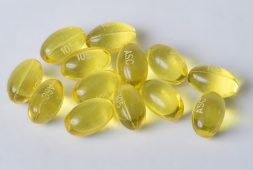19. Inhibits Rhinovirus

Ginger is sometimes used as a home treatment for colds and sore throats. It contains antimicrobial properties and may aid in the management of pain and inflammation. The root of the perennial plant Zingiber officinale is used to make ginger. For generations, people have used ginger as a herbal treatment to treat a variety of ailments ranging from arthritis to abdominal pain. People still use ginger to treat coughs and colds nowadays. According to scientific evidence, ginger has therapeutic characteristics that may help relieve the symptoms of a cold or sore throat. Although there is no solid proof that ginger helps halt or cure colds, research suggests that it may help avoid them. Ginger might also help alleviate cold symptoms. According to one review, ginger can help to prevent colds, ease sore throats, reduce congestion, and reduce inflammation. However, more research on ginger is needed to back up this information. Gingerols and shogaols are chemicals found in ginger. Researchers believe that these chemicals are responsible for ginger’s therapeutic benefits. A laboratory study published in 2011 discovered that ginger has a stronger antibacterial impact than drugs against Staphylococcus aureus and Streptococcus pyogenes. The bacteria Streptococcus pyogenes causes streptococcal pharyngitis, also known as strep throat. A more recent laboratory investigation indicated that ginger has substantial antibacterial properties. Ginger has been shown to have antiviral effects in test tube studies. Researchers discovered it to be efficient against pain and heat in animals. Fresh ginger may be useful in fighting respiratory viruses. According to a 2013 laboratory study, fresh ginger displayed antiviral benefits in respiratory illness models. The dried ginger had no impact. Ginger appears to inhibit viral reproduction. However, there is currently no evidence that ginger can protect against the virus that causes COVID-19, SARS-CoV-2. Ginger demonstrated anti-inflammatory effects in laboratory models of throat infection. The researchers believe ginger can help with pharyngitis, or inflammation of the back of the throat. Furthermore, in a 2012 laboratory investigation using ginger, alligator pepper, and nutmeg, ginger was found to have the strongest antioxidant effect of the three spices. Antioxidants aid in the prevention of cell damage caused by inflammation. It’s worth noting that the majority of these research were tiny, took place in a laboratory, or used animals. Researchers have yet to duplicate these findings in humans.



